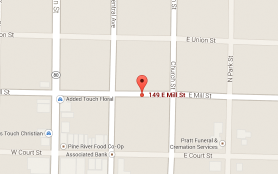Criminal Law Newsletter
Prohibiting the Warrantless Use of Heat-Sensing Devices Under the Fourth Amendment
The Fourth Amendment expressly protects “the right of the people to be secure in their persons, houses, papers, and effects, against unreasonable searches and seizures.” Usually, the prohibition against unreasonable searches and seizures requires police officers to obtain a warrant before performing a search or arresting someone.
Although there are several exceptions to the warrant requirement, police officers cannot normally search someone’s home without a warrant. In fact, as people have a heightened expectation of privacy in the home, the U.S. Supreme Court has historically afforded the highest level of protection to the right of privacy in the home.
Thermal Imaging Devices to Detect Heat
Avoiding the hurdle of the warrant requirement, police officers have frequently used thermal imaging devices to gather information about activities in an individual’s residence from a position outside the home.
Thermal imaging devices use heat-sensing technology to detect heat emanating from a person’s residence, which can often indicate that the resident is growing marijuana. As indoor marijuana growth operations typically rely on high-intensity halide lamps to grow the marijuana, a thermal imager can detect the infrared rays radiating from the lamps by scanning the roofs and walls of the home. When a scan shows that certain parts of a home are substantially warmer than the rest of the home and warmer than neighboring homes, this may indicate that marijuana is being cultivated within the home.
Thermal Imaging Case
However, the U.S. Supreme Court has since extended the warrant requirement to the use of thermal imaging devices, prohibiting police officers from using such devices without a warrant to detect indoor activities.
In Kyllo v. U.S., the Court struck down the conviction of an Oregon resident for growing marijuana. In that case, police used a thermal imaging device to confirm suspicions that marijuana was being grown in the defendant’s home. The scan noted images that appeared to be high-intensity grow lights from the defendant’s home. Reversing the lower court’s ruling that the use of a thermal imaging device was not a search that required a warrant, the Court held that police use of the heat-sensing devices without a warrant constituted an illegal search under the Fourth Amendment. The Court reasoned that “[using] a device that is not in general public use to explore details of the home that would previously have been unknowable without physical intrusion… is a ‘search’ and is presumptively unreasonable without a warrant.”
© 2026 NextClient.com, Inc. All rights reserved.







